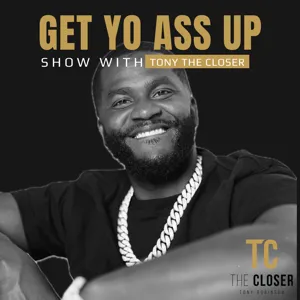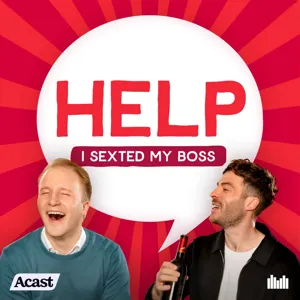Podcast Summary
Answering listener questions about implementing habits: Newport discusses implementing habits, releases new book, and plans video content. He mentions tools like Blinkist for efficient learning.
Cal Newport, in this mini episode of the Deep Questions Habit Tune Up podcast, answers listener questions about implementing the habits discussed on the show. He makes several announcements, including the release of his new book, "A World Without Email," and plans to share related articles and interviews on his blog. He also mentions that video content from the podcast is coming soon. The episode covers topics such as strategic or quarterly planning, archiving completed tasks, scheduling deep work, and using WhatsApp. Newport promotes Blinkist, a subscription service that provides summaries of nonfiction books, as a tool for getting key ideas from a wide range of books quickly and efficiently. Listeners can submit their own questions for the podcast at cownewport.com/podcast.
Guide for Long-Term Professional Objectives: Regularly update your strategic plan with major initiatives, habits, and processes to prioritize long-term objectives and support professional growth.
A strategic plan is a guiding document for your professional activities, particularly for the next quarter. It should include your major initiatives or projects, and any habits or processes you're trying to implement to support those goals. Updates to the strategic plan should be made for significant changes to these initiatives or processes. Tasks and short-term experiments, on the other hand, should be managed separately in a task system. The strategic plan serves as a weekly reminder of your long-term objectives and how to prioritize them. Updating the plan regularly ensures it remains an effective tool for guiding your professional growth.
Organizing long-term projects with a strategic plan and managing smaller tasks with a separate system: Experiment with new ideas, only incorporate significant ones into the strategic plan, and regularly review and adjust both plans for optimal progress
Both the strategic plan and the quarterly plan serve similar purposes in organizing and prioritizing tasks. However, the strategic plan is reserved for larger, long-term projects, while smaller tasks are better managed through a separate system or calendar. The key is to experiment with new ideas and only incorporate those that have a significant impact into the strategic plan. Additionally, it's important to regularly review and adjust both the strategic plan and the task system to ensure that progress is being made on the most important projects.
Managing tasks effectively involves balancing short-term and long-term projects: Use a calendar or task system for smaller projects, focus on the bigger picture for larger ones, archive completed tasks for record-keeping if necessary, and simplify the process with tools like Trello.
Effective task management involves keeping track of both short-term and long-term tasks. For smaller to mid-sized projects, it's beneficial to have a clear view of tasks by using a calendar or a task system. On the other hand, larger, strategic projects require a different approach, focusing on the bigger picture and keeping a separate list for smaller tasks. Regarding archiving completed tasks and projects, it's essential to consider the context and whether archiving is necessary for record-keeping purposes. If so, it's recommended to focus on reducing friction and making the process as quick and simple as possible. Tools like Trello can help with archiving tasks, but it's important to consider the ease of retrieval and searchability of archived items. Overall, the key is to find a system that works best for your specific needs and helps you make progress on your tasks efficiently.
Documenting progress with Google Docs or a similar tool: Use simple tools for documenting project progress, set boundaries for WhatsApp use, and find a balance between staying connected and staying focused.
Using a simple tool like Google Doc or a workflow for documenting project progress offers flexibility, low friction, and the ability to write in your own words. This method allows for easy reference and a clean, organized record. The speaker recommends manually adding tasks with dates and descriptions, and using this method as part of your daily routine to avoid it becoming a major impediment. Regarding WhatsApp, the speaker initially thought it was a better alternative to Facebook and Twitter due to its curated nature and focus on personal connections. However, they acknowledge that it can still be a significant distraction. The speaker suggests setting boundaries, such as designating specific times to check WhatsApp, and avoiding multitasking while using the app. Additionally, they recommend muting notifications for non-essential groups or turning off notifications altogether during focused work hours. Overall, the key takeaway is to find a balance between staying connected and staying focused, and to use tools and habits that support productivity rather than hinder it.
The Evolution of Social Media Platforms: Prioritizing Engagement Over Privacy and Connection: Social media platforms like Facebook and WhatsApp have evolved to prioritize user engagement, leading to trade-offs in privacy and connection with specific individuals, resulting in a more fragmented social media landscape.
Social media platforms like Facebook and WhatsApp have evolved over the years to keep users engaged, but these changes have come with trade-offs. The speaker initially preferred using WhatsApp for sharing family photos because of its privacy features. However, she found it to be a major distraction. Facebook, on the other hand, started as a network where users could connect with their friends and family, but it shifted to a news feed model that prioritizes emotionally arousing content to keep users engaged. This shift weakened Facebook's network effect advantage, making it compete with other forms of entertainment. To counteract this, Facebook bought WhatsApp to expand its reach and maintain its dominance in the market. Ultimately, these platforms prioritize user engagement over privacy and connection with specific individuals, leading to a more fragmented social media landscape.
Facebook's strategic move to acquire WhatsApp for group messaging apps: Facebook recognized the value of social connection through private forms of communication like group messaging apps, leading to their acquisition of WhatsApp to maintain a presence in this market. Users engage differently with these apps, creating a powerful and sticky user experience.
Social media platforms like Facebook recognized the value of social connection through group messaging apps like WhatsApp, as users migrated towards more personal and private forms of communication. Facebook's acquisition of WhatsApp was a strategic move to maintain a presence in this market, as these platforms offer a different selling proposition than news feed models. Group messaging apps provide quick moments of connection with people you care about throughout the day, creating a powerful and sticky user experience. Users engage with these apps in different ways, either being fully immersed in the continuous partial conversation or being occasional participants. While being an occasional participant may result in less connection and isolation, it is necessary for many people to manage their time and focus effectively. Overall, social media companies continue to adapt to user behavior and preferences, highlighting the importance of social connection in the digital age.
Balancing Digital and Analog Communication: Maintain social connections through occasional, intense conversations using various communication tools, and balance digital and analog communication to avoid sacrificing sociality or cognitive resources.
Shifting from continuous partial conversations on digital platforms to occasional participant models can be challenging for our brains and relationships. Our brains don't treat digital interactions the same way as in-person or voice conversations, and reducing our cognitive resources by multitasking can negatively impact our ability to think clearly. To mitigate this, it's essential to schedule more intense, one-on-one conversations using various communication tools like phone calls, video conferencing, or in-person meetings. This approach allows us to maintain social connections while avoiding the downsides of constant digital engagement. Additionally, apologizing for not being available constantly and adjusting expectations can help manage any initial pushback from those used to constant interaction. Overall, finding a balance between digital and analog communication can help us leverage the social internet without sacrificing our sociality or cognitive resources. A new sponsor of the Deep Questions podcast, The Rise Protein Bar, offers nutritious and delicious protein bars that can help fuel your mind and body during your busy day. With various flavors and ingredients, The Rise Protein Bar is a perfect on-the-go snack for those looking to maintain their energy and focus. Check them out today!
Automate daily routines for increased focus: Automating breakfast or lunch with RISE protein bars and securing life insurance through Ladder saves time and boosts productivity and peace of mind.
Automating and optimizing daily routines, especially when it comes to food and productivity, can lead to increased cognitive energy and focus. The new RISE protein bar is a great addition to an automated breakfast or lunch schedule, as it delivers a balanced amount of protein using clean, natural ingredients. Additionally, securing life insurance, especially for those with families, is an important task that can be made easy and affordable through companies like Ladder. For PhD students, having a prolonged period of deep work ahead, it's essential to make the most of the time by focusing on research and prioritizing tasks, understanding that the workload may not be as intense as before. Remember, use the promo code "deep30" for a discount on RISE bars and "deep" when applying for Ladder life insurance.
Maximize deep work productivity with focused sessions: Schedule your day with two deep work sessions, separated by a break. Use non-deep work hours for personal growth and interests to maintain a balanced life.
To maximize deep work productivity, schedule your day with two focused sessions, separated by a break. Use this structure to make the most of your deep work hours without overwhelming yourself. Additionally, utilize your non-deep work hours for personal growth and interests. This approach, as the speaker's personal experience shows, can lead to significant progress on academic projects while also allowing for a rich and fulfilling life outside of work hours. Remember, it's essential to pace yourself during deep work periods, as there is a limit to the amount of intense focus your brain can handle daily. Don't be afraid of dedicating yourself to deep work, as it's a valuable investment in your intellectual growth.
Making the most of your time: academically and personally: Work hard and make time for activities outside of obligations for a well-rounded and fulfilling experience.
Making the most of your time, both academically and personally, is crucial for maintaining motivation and overall well-being. The speaker shares his personal experience of making the most of his time during harsh winters by spending time outside, engaging in physical activities, and staying connected with his academic community. He emphasizes the importance of not only working deeply and intensely but also living deeply and enjoying the topic of your study as a significant part of your identity. By doing so, you can keep your intrinsic motivation high and make the most of this unique stage of life. So, remember to work hard, but also make time for activities outside of your obligations to ensure a well-rounded and fulfilling experience.





